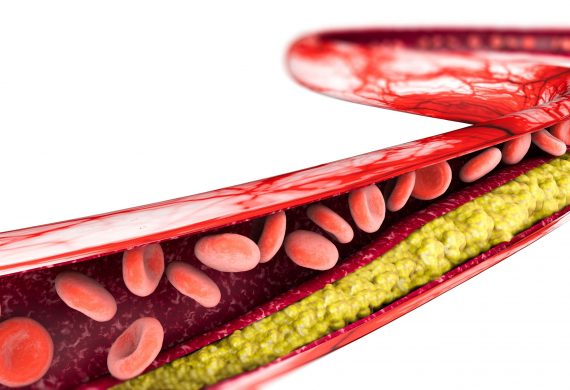Blood Cholesterol Test
The measurement of blood cholesterol levels, also known as a lipid profile, is a simple blood test used to estimate the risk of atherosclerotic cardiovascular disease (a build-up of cholesterol and fatty deposits within the arteries) and to guide therapeutic decision-making.
Why You Should Get Your Blood Cholesterol Tested
High blood cholesterol, like high blood pressure, does not present any symptoms and can only be detected through a cholesterol test. High blood cholesterol also affects heart health, increasing one’s risk for heart disease. Thus, it is important to get your cholesterol screened regularly as a step toward disease prevention.
What Is Measured In This Test?
- Total Cholesterol
A sum of all the cholesterol in your blood. - High-Density Lipoprotein HDL – Cholesterol
This is also known as “good” cholesterol because it helps transport cholesterol from the arteries to the liver to be broken down. High HDL-C helps to keep the arteries open, maintains normal blood flow and protects from heart disease. - Low-Density Lipoprotein LDL – Cholesterol
This is the so-called “bad” cholesterol. High LDL-C causes the build-up of fatty deposits (plaques) in the arteries, which can affect blood flow and cause a heart attack or stroke. - Triglycerides
Another type of fat in the blood besides cholesterol. It is formed when the body converts excess calories which are not used up to be stored in fat cells. High triglyceride levels are associated with excess calorie intake, smoking, alcohol consumption, and diabetes mellitus.
How To Check Cholesterol?

A blood cholesterol test is done by taking a sample of venous blood from your arm.
This is done in an aseptic way. Only 3cc of blood is needed. The procedure is relatively painless and should take no more than a minute.
How Do You Prepare for a Blood Cholesterol Test?
Traditionally, blood samples for lipid analyses are recommended to be done in the fasting state. You are required to abstain from any food or drinks (other than clear water) for at least 12 hours before the blood test.
However, some cholesterol tests nowadays may not require fasting, and it will be good that you check with your health care professional.
What Do The Numbers Mean?
How your cholesterol numbers are classified
| Measurement in mmoI/L (mg/dL) | Classification |
| Total Cholesterol | |
| < 5.2 (200) | Desirable |
| 5.2 – 6.1 (200 – 239) | Borderline High |
| ≥ 6.2 (240) | High |
| LDL Cholesterol | |
| < 2.6 (100) | Optimal |
| 2.6 – 3.3 (100 – 129) | Desirable |
| 3.4 – 4.0 (130 – 159) | Borderline High |
| 4.1 – 4.8 (160 – 189) | High |
| ≥ 4.9 (190) | Very High |
| HDL Cholesterol | |
| < 1.0 (40) | Low |
| 1.0 – 1.5 (40 – 59) | Desirable |
| ≥ 1.6 (60) | Optimal |
| Triglyceride | |
| < 1.7 (150) | Optimal |
| 1.7 – 2.2 (150 – 199) | Desirable |
| 2.3 – 4.4 (200 – 399) | High |
| ≥ 4.5 (400) | Very High |
MOH 2016 Hyperlipidaemia Guidelines
Based on your cholesterol levels and your clinical profile (age, gender, ethnic group), smoking habit, blood pressure level, pre-existing history of heart disease, diabetes mellitus and kidney disease, your doctor will determine your risk level and recommend the appropriate treatment and follow-up management.
The treatment of high blood cholesterol levels may merely be lifestyle modification (dietary pattern change, exercise, weight reduction), or may require cholesterol-lowering medications (oral or injectables).
Who Should Get Tested?
According to the Ministry of Health 2019 Screening Test Guidelines, the following should get a cholesterol screening:
- All men and women aged 40 years and older
- Younger adults (men and women aged 18 and older) if they have other risk factors for coronary artery disease (CAD)
- Diabetes mellitus
- Multiple CAD risk factors (e.g. smoking, hypertension, impaired glucose tolerance or pre-diabetic state)
- Family history of cardiovascular disease in male relatives before age 50 years, or in female relatives before age 60 years
- Family history suggestive of familial hyperlipidaemia (a form of hereditary high lipid disorder)
How Often Should You Get Tested?
According to the Health Promotion Board, adults should get their cholesterol checked once every three years.
Individuals who are at higher risk of developing high cholesterol or are at higher risk of heart disease should begin their cholesterol test early or at the direction of their health care professional.
Where to Get A Cholesterol Test
The National Screen for Life programme provides subsidised health screening for Singapore citizens, including tests for high blood cholesterol, high blood pressure, obesity and diabetes at CHAS GP clinics. Check your eligibility here.
Conclusion
A simple cholesterol check, which has little risk, can estimate one’s risk of heart attacks and prevent them through early treatment.
If you have high blood cholesterol or other factors that could contribute to increased cholesterol levels, it is important to manage it through changes in your lifestyle habits.
Healthy Living Habits to Adopt:
- A healthy, balanced diet
Foods high in saturated fat have the ability to increase LDL levels. Conversely, foods high in unsaturated fat can help improve cholesterol levels. Have a heart-healthy diet rich in fibre and follow the principles of the Heart Smart Eating Plate to maximise beneficial outcomes on your cholesterol levels. - Exercise regularly
Physical activity increases HDL cholesterol in the blood, thereby lowering LDL cholesterol levels. Aim to exercise at moderate intensity for 150 to 300 minutes per week. - Quit smoking
Smoking decreases HDL cholesterol and damages the walls of the artery, causing LDL cholesterol buildup. Quitting smoking not only improves cholesterol levels but also improves overall health and lowers your risk of cancers and the development of chronic diseases.
Read more about the causes, complications and treatment for high blood cholesterol.
Article contributed by Prof Tan Huay Cheem, Chairman, Singapore Heart Foundation; Senior Consultant, Department of Cardiology, National University Heart Centre, Singapore.






